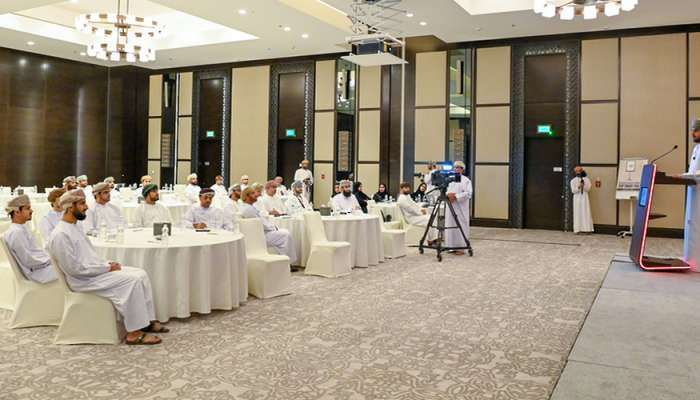The Ministry of Information in Muscat recently organized the 26th Government Communication meeting, which focused on the important role that institutional communication plays in shaping the mental image of various government institutions. This meeting brought together communication and media directors from different government agencies to discuss the strategic projects that have been implemented in collaboration with various institutions. The meeting also highlighted strategies and mechanisms for building and maintaining institutional reputation, as well as best practices for enhancing public trust and interaction.
The Government Communication Centre, which hosted the meeting, emphasized the importance of effective communication in conveying the values and goals of government institutions to the public. By maintaining a strong and positive image through strategic communication efforts, government agencies can enhance public trust and credibility. This, in turn, can lead to increased engagement and interaction with the public, fostering a better understanding of the roles and responsibilities of these institutions.
One of the key topics discussed during the meeting was the significance of transparency in communication. By being open and honest in their communication practices, government institutions can build trust and credibility with the public. Transparency also plays a crucial role in maintaining accountability and fostering a sense of responsibility among government agencies. By sharing information openly and effectively, institutions can demonstrate their commitment to serving the public interest and upholding ethical standards.
In addition to transparency, the meeting also emphasized the importance of incorporating new and innovative communication strategies to engage with the public. In today’s digital age, government agencies must adapt to new technologies and platforms to reach a wider audience. By leveraging social media, online platforms, and other digital tools, institutions can effectively communicate with the public and enhance their visibility and reputation. Embracing digital communication channels can also help government agencies stay relevant and connected in an increasingly interconnected world.
Furthermore, the meeting highlighted the role of storytelling in communication. By using storytelling techniques, government agencies can humanize their messages and make them more relatable and engaging to the public. By sharing stories that resonate with audiences on a personal level, institutions can evoke emotions and connect with individuals on a deeper level. This can help build relationships, foster empathy, and create a strong bond of trust between government agencies and the public.
In conclusion, the 26th Government Communication meeting in Muscat underscored the importance of effective communication in shaping the image and reputation of government institutions. By prioritizing transparency, embracing digital communication channels, and incorporating storytelling techniques, government agencies can enhance public trust, engagement, and interaction. Through strategic communication efforts, institutions can build strong relationships with the public, gain support for their initiatives, and ultimately foster a more informed and empowered society.











